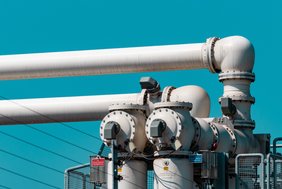"EU member states must learn from their old missteps in energy policy. The EU needs a common external energy policy based on solidarity and a collective European security interest." (Dr Aline Bartenstein)
Since the EU member states themselves were last affected by the gas dispute between Ukraine and Russia in 2009, Europe's dependence on Russian gas has not diminished. In this context, two narratives about energy relations with Russia prevailed. On the one hand, Russia was presented as a reliable partner that never intended to use gas as a geopolitical weapon. On the other hand, it was argued that energy policy must always be security policy as well, since a crisis would lead to serious problems in heating homes and, not least, hit the economy hard. Eastern European states in particular problematised the asymmetric interdependence that increased their vulnerability vis-à-vis Russia. Asymmetric interdependence occurs when the dependence of one side is disproportionately higher than that of the other.
To avoid another gas crisis and ensure that "our energy future is under control", the member states established the European Energy Union to give energy policy a common European umbrella.
Within this framework, the internal gas market was to be further liberalised and infrastructure developed. In addition, dependencies were to be reduced through greater diversification of suppliers and transport routes. The idea behind this was that the member states should be able to make their political decisions independently of Russian energy supplies. However, proposals for the organisation of joint gas purchasing were not heard.
Despite limited progress in strengthening energy security, the supply situation did not change significantly as Russian gas entered EU markets via Nord Stream 1, bypassing the former main transit routes through Ukraine and Poland. The argument that the Nord Stream 1 and 2 pipelines would strengthen security of supply was met with fierce resistance, as the possible use of energy as geopolitical leverage was not sufficiently taken into account. The consequences of this policy for the European capacity to act, partly due to the neglect of the concerns of the Eastern European states, are now obvious. What is decisive, however, is that the logic according to which Russia is a reliable partner no longer holds.
The Ukraine war is a definitive reminder of the need for European energy sovereignty. The member states - especially those with a high dependency on Russian gas - are severely limited in their peace and security policy decision-making scope vis-à-vis Russia. A "watershed moment" would imply leaving national egoisms behind and finally pursuing a common foreign energy policy based on solidarity and a collective European security interest.
